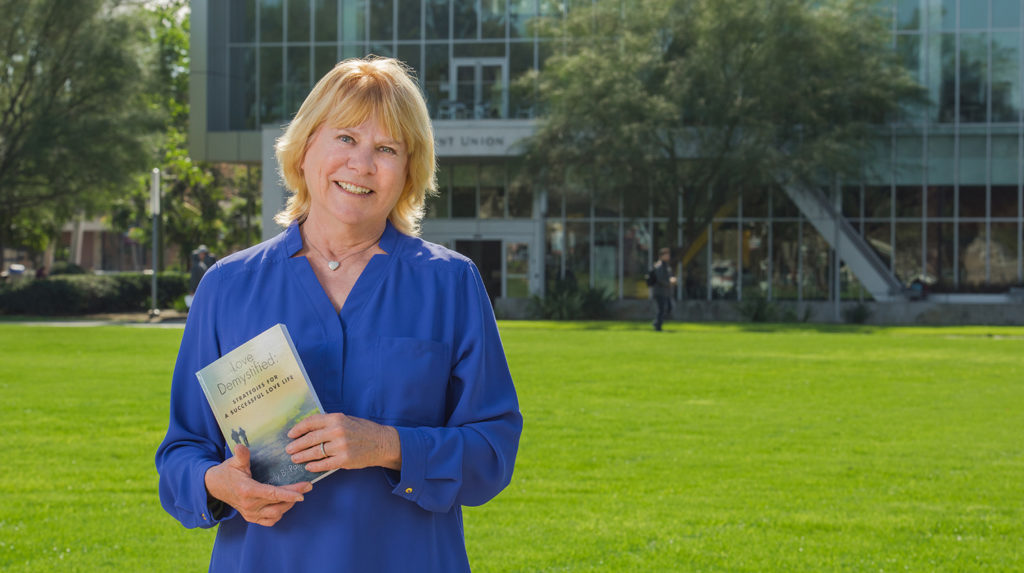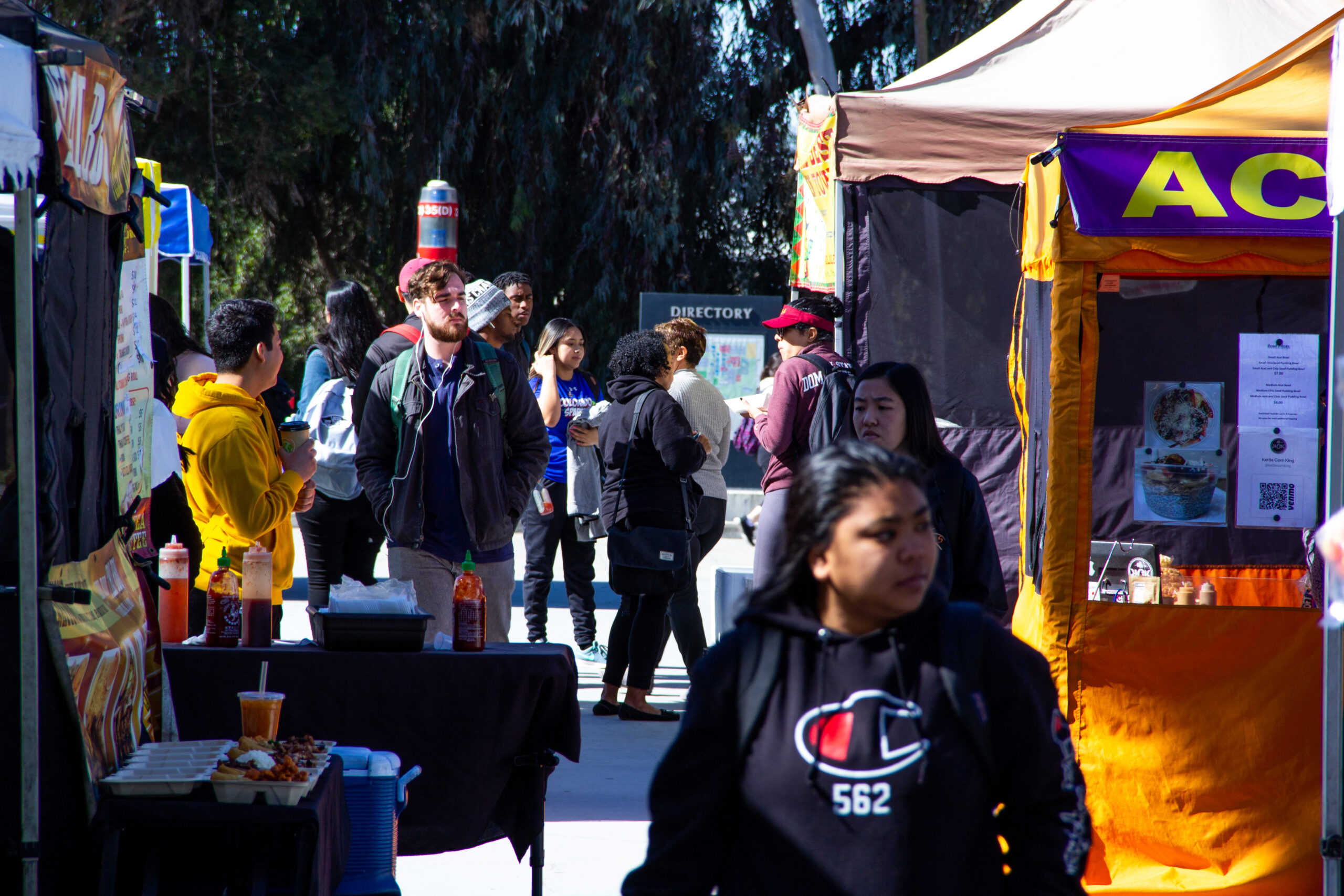Editor’s Note: This is the full version of the story that will run in the March 8 print of the CSUDH Bulletin
By Yeymy Garcia, Features Editor
The Love Doctor is In: Dr. Beverly Palmer Shares Her Insights on Why Love Works, and Why It Doesn’t
If you’re looking for love, wondering if your current love will last or is right for you, or just curious what all this love business is about, then you might want to pay attention to a notable member of our retired faculty, Dr. Beverly B. Palmer.
Dr. Palmer, a CSUDH emeritus psychology professor who taught here for 38 years, presented a sneak preview of her book, “Love Demystified: Strategies for a Successful Love Life” on Feb. 25 in Loker Student Union. The event, sponsored by the Psychology Club, the Psi Chi honor society, and the psychology department, a

But before we get to her presentation, a little about CSUDH’s resident love doctor. Dr. Palmer said the inspiration behind her research was growing up with a curious mind. As a single child, she said she always how things worked and became interested in human interactions when she did her dissertation at Ohio State University in 1969 during the Second Feminist Wave.
She wrote the first manuscript of “Love Demystified” in 1985, but then her publisher died. Palmer was so upset she stored her manuscript away and forgot about it until a few years ago while cleaning out her garage before her son got a chance to throw away her belongings.
“Love Demystified” was first called “LoveLife.” On her blog, “lovelifeprof.com,” she writes, “…this manuscript was a piece of crap. Yet, my editorial self could not let it go.” She re-wrote her book with updated research until her book was finally published in January 2018.
Dr. Palmer also began teaching full-time when she was in graduate school. She taught for 38 years at CSUDH and holds a lot of love for the campus and its students.
“I am grateful to DH and its students for giving me the platform that allows me to do this in-depth studying about love,” she said. “Because of the courses I taught and because of the general atmosphere. It’s really a sense of community.”
Even though Palmer is retired, she still took the time to come back to CSUDH and give students a little lesson on the science behind love.
The first thing Palmer revealed in her presentation last month were the stages of love: longing (wanting someone); oneness (you and your partner become one); vulnerability (fighting happens, and feelings are exposed); and empathy (will we last forever?)
“Dopamine and serotine made me do it” was the caption on one slide. Palmer explained that dopamine and serotine are responsible for the obsessing stage at the beginning of a relationship. It later becomes oxytocin, which causes bonding.
If you’re questioning whether you love your partner more than they love you, Palmer has two recommendations. One, send your partner a funny or cute animal video along with a picture of yourself. Two, do something exciting with your partner that will cause heightened arousal, like riding a roller coaster. What these things are trying to do is make your brain associate a feeling with you.
So, what are the red flags to look for in a relationship?
Some questions to ask yourself are:
- Do they want to do things their way?
- Do they get upset when others disappoint them?
- Do they insist on being in charge?
- Do they easily get jealous or suspicious?
- Do they blame others when something goes wrong?
- Do they bully or flatter people to doing what they want?
But you don’t have to wait to see if someone will be a good partner.
“Psychologists say you can predict if a relationship can last during the first few interactions,” Palmer said.
Criticism, defensiveness, contempt, and stonewalling are a few negative interactions to avoid.
The positive traits you should be looking for, Palmer said, are: acceptance (unconditional love, valuing each other’s uniqueness, and accepting each other’s weaknesses instead of strengths), empathy (understanding their experience, motivations, and point of view. Even if you don’t agree with them), and appreciation (letting them know in any way you appreciate them).
At the end of the presentation, Palmer held a raffle for a signed copy of her book.
Deandra Davis, a psychology major, won the raffle. She was thrilled and enjoyed the presentation.
“I felt like she was talking to me,” said Davis. “I was like, ‘Have you been to my house?’”
Davis checked out the presentation because the topic of love fascinates her, and she also wanted to get tips on how to maintain her relationship of almost three years.
“I learned that I have to work on myself and not put too much pressure on him,” said Davis.
To learn more about what Dr. Palmer has to say about love, you can check out her book, “Love Demystified: Strategies for a Successful Love Life” and her blog, lovelifeprof.com.

